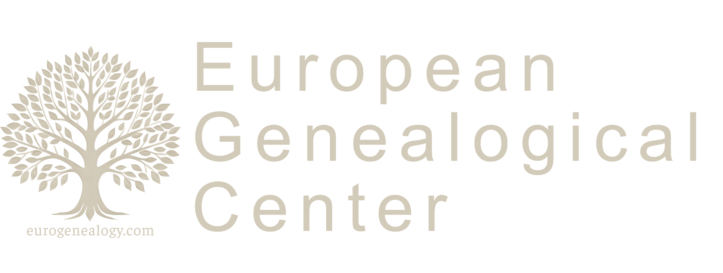Swiss genealogical research: tracing ancestors & family tree
Discover your ancestry dating back to the 16th century
Archival search and family history research in Switzerland
Genealogical research in Switzerland opens a rare and rewarding pathway into one of Europe’s most intricate historical landscapes. Switzerland’s deeply rooted federal and cantonal structure, along with its multilingual character and long-standing neutrality, have shaped a unique archival tradition spanning centuries. The country’s history is marked by dynamic regional affiliations — with territories historically tied to the Holy Roman Empire, France, the Duchy of Savoy, the Habsburgs, and various German principalities. These overlapping spheres of influence have left behind diverse genealogical traces across linguistic, religious, and cultural lines. At the European Genealogical Center, we offer specialized assistance in tracing Swiss ancestry, reconstructing family trees, interpreting handwritten records, and contextualizing ancestral lives within local and regional history. Archival documentation in Switzerland dates as far back as the late Middle Ages in some cantons, allowing for precise, multi-century genealogical investigations rooted in original sources.
Clients often seek our help to confirm Swiss origins or obtain documentation required for citizenship applications, inheritance claims, or establishing dual nationality through ancestry. We conduct detailed research in cantonal, communal, church, and state archives, navigating the decentralized and highly autonomous nature of Swiss recordkeeping. Many Swiss records — especially in rural and alpine regions — are preserved locally, requiring expertise in regional dialects, paleography, and legal terminology. Our team retrieves and authenticates vital records, produces translations where necessary, and compiles custom family history books that include family trees, annotated archival material, photographs, and historical overviews. We also consider Switzerland’s linguistic regions — German, French, Italian, and Romansh — and the country’s confessional divides between Catholic, Protestant, and Reformed communities when tracing and interpreting ancestral documents. Our research incorporates a deep understanding of Swiss history, culture, and the evolving political landscape to ensure comprehensive, accurate findings.
Sources of genealogical research in Switzerland
Swiss genealogical sources vary significantly by canton and denomination, but core materials include baptismal, marriage, and burial registers, civil status records (mandatory after 1876), tax rolls, military conscription lists, household enumerations, and commune citizenship books (Bürgerbücher or livres de bourgeoisie). Church registers, often kept meticulously from the 16th or 17th centuries onward, remain essential to genealogical reconstruction, particularly in parishes of the Reformed Church and Roman Catholic dioceses. In multilingual cantons, entries may appear in German, French, Latin, or Italian, and are frequently written in early modern cursive styles. These records offer more than vital statistics — they reveal intergenerational residence patterns, kinship ties, migration within or between cantons, and clues about social standing and occupations. Additionally, tax records and military service lists provide invaluable insights into family economic status and involvement in civic or military duties, helping to trace ancestral livelihoods and mobility. Family wills and property deeds also enrich this research, providing context for economic prosperity and inheritance practices.


Beyond parish and civil records, we delve into numerous supplementary archives that illuminate everyday Swiss life across regions and centuries. These include notarial deeds, guild memberships, school and university registers, local court cases, poor relief lists, and detailed population censuses from the 19th century. Switzerland’s tradition of documenting communal citizenship — distinct from national citizenship — provides unique insight into family continuity within a given locality, sometimes over many generations. Military rolls, emigration files (particularly from cantons affected by 19th-century economic hardship), and land cadastres also enrich our understanding of family movements and economic conditions. Additionally, detailed trade and business contracts, as well as local government correspondence, help trace occupational shifts, wealth accumulation, and the broader socio-political climate that shaped family dynamics in different eras. The preservation of local customs and family practices through these records also allows us to paint a vivid picture of daily life, from agricultural routines to urban development.
Neighboring countries where we conduct research
Examples of our research
Below you can review examples of research reports received by our customers:
Prices for genealogical services in Switzerland
You can find a detailed price list and description of all services of European Genealogical Center here
Prices for genealogical services in Switzerland
Genealogical research
From €1500
Tracing family history back to the 17th century
Biographical search
From €800 to €2000
Establishing the life story of an individual and their close relatives
Nationality confirmation
From €500 to €1500
Identifying details about a person’s ethnic origin
Document search
From €200 to €1200
Obtaining certificates, parish registers, and civil registry records
Family history book
From €2500
Creating a unique publication describing the genus history
Family history website
From €2000
Development of a personal website dedicated to your family’s history
Submit a request, and we will contact you shortly
You can also reach us directly by sending an email to: european.genealogical.center@gmail.com or writing to us in Telegram

european.genealogical.center@gmail.com
© 2026
All rights reserved
All rights reserved
Contact us:

